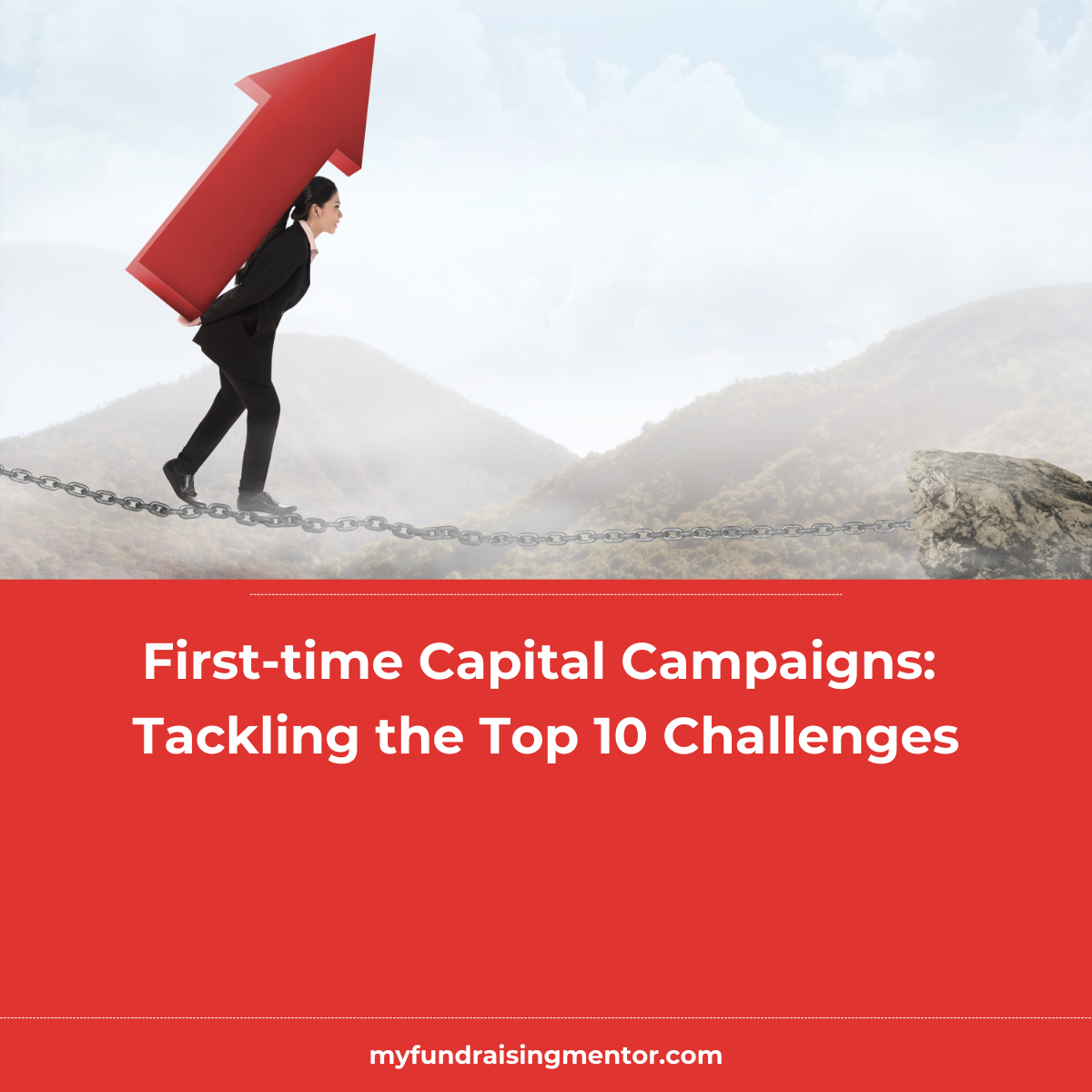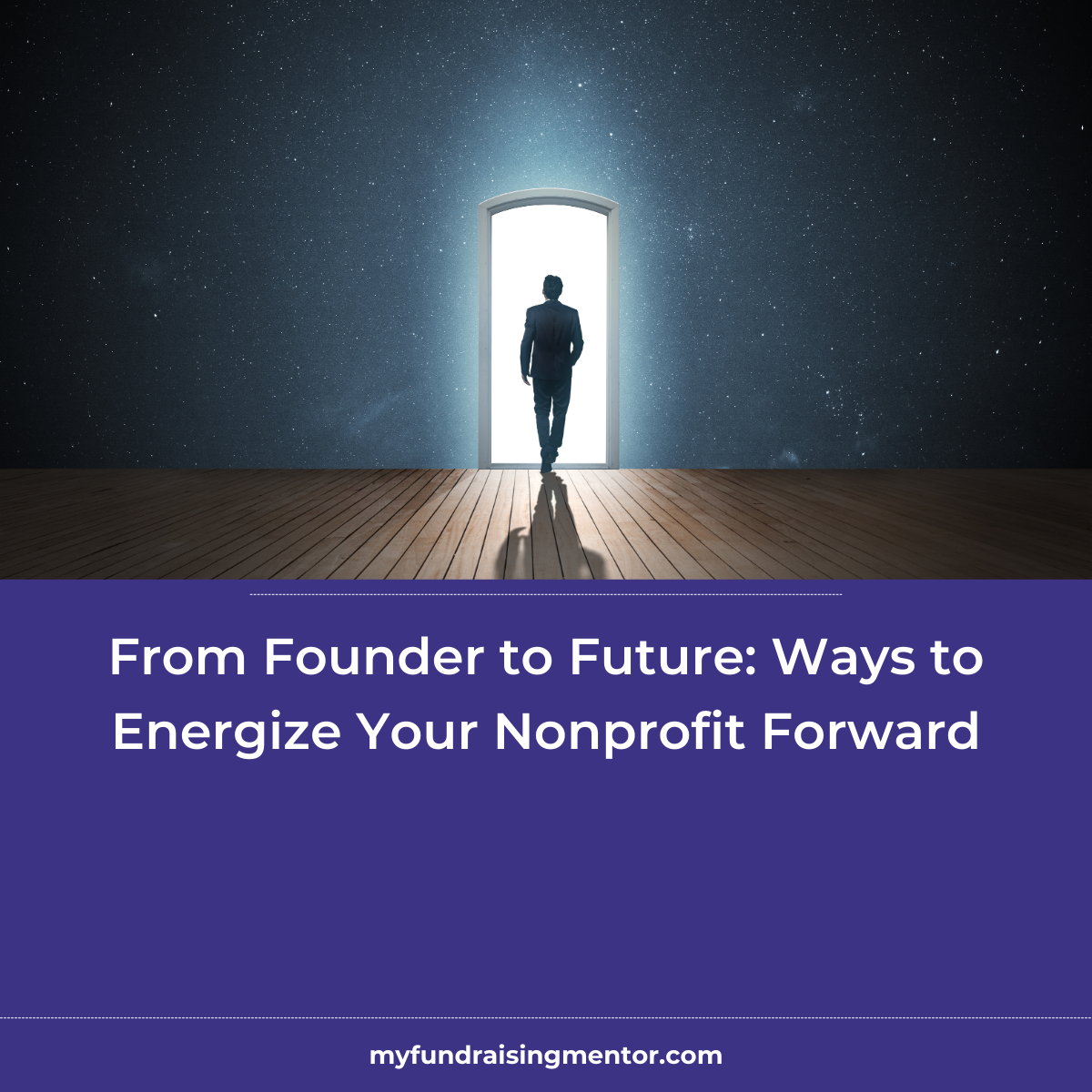Embarking on a capital campaign can be daunting for charities, especially those with limited resources or prior experience. The most common reasons are urgent, immediate needs and long-term goals such as facility expansion or renovations, new program and social impact initiatives, emergency repairs or maintenance, declining revenue, and technology advancements.
While I advise conducting a capital campaign with the expertise to guide you through every step, from project identification to the campaign goal, Boards may decide to go it alone. Before deciding how to proceed, you should be aware of ten challenges you will face during the campaign process and some actionable strategies you can use to overcome them.
1. Defining Clear Goals
Challenge: Establishing financial targets and project objectives is crucial yet often complex, as it involves accurate budgeting and precise project articulation.
Strategy: Conduct thorough discussions with key stakeholders, including architects, engineers and financial advisors, to break down costs and create a realistic financial projection. Communicate how the charity will allocate funds to enhance transparency and foster trust among potential donors.
2. Conducting a Feasibility Study
Challenge: Assessing readiness for the campaign and potential donor support is essential for organizations new to capital campaigns.
Strategy: Consider hiring a consultant to conduct the feasibility study. This can lend credibility to your findings and help you effectively navigate stakeholder feedback. Implementing surveys or focus groups can also yield crucial insights into donor sentiment and capacity.
3. Engaging the Board and Leadership
Challenge: Gaining total commitment from the board and leadership, underscored by busy schedules, can hinder campaign progress.
Strategy: Foster early and ongoing engagement with board members by highlighting their integral role in the campaign’s success. Expand your campaign leadership team with community leaders committed to your cause. Facilitate structured meetings to assign clear roles within the campaign team and encourage commitment levels tailored to each board member’s strengths and capacity.
4. Creating a Strong Case for Support
Challenge: Develop a persuasive narrative that captures the organization’s mission and the capital project that resonates with potential donors.
Strategy: Collaborate with storytelling experts or marketing professionals to craft a compelling and emotionally resonant case for support. Gather impact data through surveys and testimonials to provide a well-rounded view of how donations will make a difference.
5. Developing a Strategic Fundraising Plan
Challenge: Outlining a comprehensive fundraising campaign strategy is resource-intensive and requires deliberate planning.
Strategy: Form a dedicated campaign steering committee to ensure that diverse perspectives are considered in the planning process. Utilize project management tools to create timelines and assign responsibilities efficiently. Regularly revisit and adjust your strategy based on ongoing feedback and insights.
6. Building and Maintaining Donor Relationships
Challenge: Engaging existing donors while forging connections with new prospects is critical to campaign success yet often labour-intensive.
Strategy: Use customer relationship management (CRM) software technology to track donor engagement and personalize outreach to donors. Develop tailored communication strategies for different donor segments to foster deeper connections based on their interests and motivations.
7. Marketing and Communications
Challenge: Establishing a cohesive marketing strategy across multiple channels can be complex and time-consuming.
Strategy: Designate a marketing team or assign roles specifically for this purpose. Utilize templates and digital tools to streamline the creation of campaign materials. Regularly assess the effectiveness of different marketing channels and adjust the strategy accordingly.
8. Training Staff and Volunteers
Challenge: Preparing teams to engage potential donors successfully requires a well-structured training program.
Strategy: Create a structured onboarding process that includes comprehensive training sessions, role-playing exercises, and scenario-based learning. Provide ongoing support and resources to volunteers and staff as they engage donors.
9. Monitoring Progress and Making Adjustments
Challenge: Consistently tracking progress and adapting strategies based on performance data.
Strategy: Establish a clear set of success metrics from the start. Schedule regular check-in meetings to review performance, celebrate milestones, and make necessary adjustments promptly based on data-driven insights.
10. Ensuring Follow-Up and Stewardship
Challenge: Timely follow-up and donor recognition, including naming opportunities, are often overlooked amid the pressures of ongoing campaign activities.
Strategy: Develop a systematic approach to donor recognition, follow-up and stewardship. Implement a donor recognition program that acknowledges contributions creatively and consistently throughout the campaign cycle.
Conclusion
While the challenges presented by capital campaigns can be overwhelming, particularly for smaller charities, they are manageable. By approaching these challenges with structured planning, strategic delegation, and a commitment to building meaningful relationships, organizations can significantly enhance their prospects for success. This emphasis on building meaningful relationships can make leaders and board members feel more connected and engaged. Breaking tasks into manageable steps, actively involving stakeholders, and seeking external expertise when necessary can alleviate pressure and foster a thriving fundraising environment.
If you want to save time, raise more funds, and use your board’s time and energy more efficiently, consider hiring a fundraising consultant with experience in capital campaigns. A fundraising consultant can provide strategic guidance, assist in developing a comprehensive fundraising plan, and offer expertise in donor relations and campaign management.
Please email me for more information and a list of resources to assist you. Together, we can unlock your full potential in fundraising.
For more fundraising blogs, go to: https://myfundraisingmentor.com/blog
Pam Simmons, APR, CFRE, CTT is a Fundraising Consultant and Mentor with Coreniche Consulting Inc. in Winnipeg, Manitoba, offering fundraising strategic consultation for capital campaigns, fund development plans, mentorship and training.


